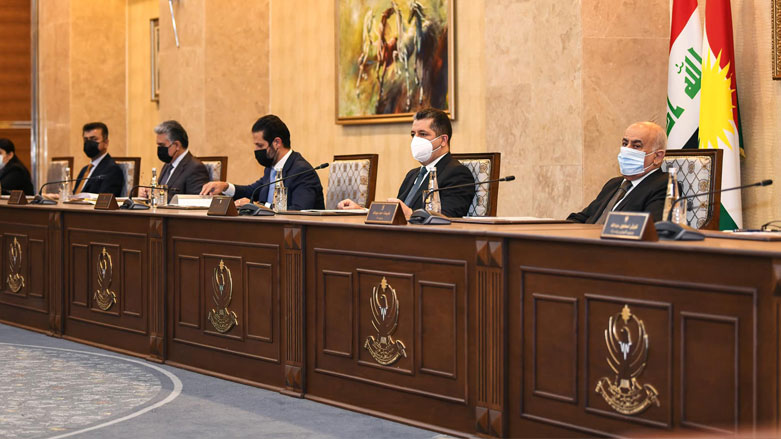KRG underlines persecution of ISIS, recognition of crimes as ‘genocide’: Council of Ministers

ERBIL (Kurdistan 24) – The Kurdistan Regional Government (KRG) reiterated its commitment to the international efforts investigating crimes committed by the so-called Islamic State and intensifies efforts to recognize them as “acts of genocide,” the council of ministers announced on Wednesday.
KRG Prime Minister Masrour Barzani, on Wednesday, chaired a regular session of the council of ministers, in which the atrocities committed by the Islamic State and global efforts to investigate them, were discussed, according to a statement from the council.
In the meeting, the Kurdistan Region’s interior minister, Rebar Ahmed, presented a detailed report on the KRG efforts to recognize Islamic State crimes as “an act of genocide,” highlighting the findings by the United Nations Investigative Team to Promote Accountability for Crimes Committed by ISIS (UNITAD), the statement noted.
Established in 2018, the UN agency supports local authorities and entities to hold Islamic State members accountable for the crimes they committed by “collecting, preserving, and storing evidence,” that have the potential of “war crimes, crimes against humanity, and genocide,” according to the organization.
Previously, Prime Minister Masrour Barzani called for the compensation of members of the Yezidi religious minority that were victimized by the terror group.
Read More: Kurdistan PM calls for compensation for Yezidis
Nearly 10,000 Yezidi women, men, and children were either killed or abducted during the terror group’s grip on Shingal, and many remain missing.
Over 400,000 displaced Yezidis live outside their home of Shingal, mainly being sheltered within displacement camps in the Kurdistan Region’s refugee camps. Since the rise of the terror group in 2014, the KRG reports that it has hosted over 1.8 million internally displaced persons (IDPs) and refugees.
Editing by Karzan Sulaivany
